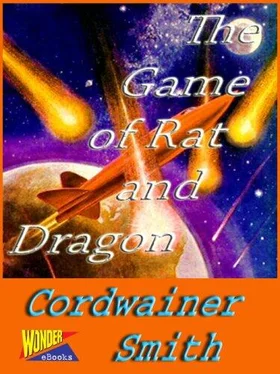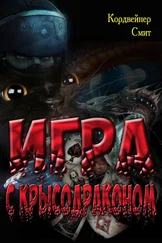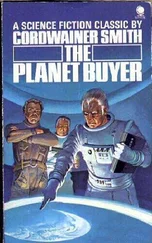It took a surviving ship to bring back the news—a ship in which, by sheer chance, a telepath had a light-beam ready, turning it out at the innocent dust so that, within the panorama of his mind, the Dragon dissolved into nothing at all and the other passengers, themselves nontelepathic, went about their way not realizing that their own immediate deaths had been averted.
From then on, it was easy—almost.
* * *
Planoforming ships always carried telepaths. Telepaths had their sensitiveness enlarged to an immense range by the pin-sets, which were telepathic amplifiers adapted to the mammal mind. The pin-sets in turn were electronically geared into small dirigible light-bombs. Light did it.
Light broke up the Dragons, allowed the ships to re-form three-dimensionally, skip, skip, skip, as they moved from star to star.
The odds suddenly moved down from a hundred to one against mankind to sixty to forty in mankind’s favor.
This was not enough. The telepaths were trained to become ultra-sensitive, trained to become aware of the Dragons in less than a millisecond.
But it was found that the Dragons could move a million miles in just under two milliseconds and that this was not enough for the human mind to activate the light-beams.
Attempts had been made to sheathe the ships in light at all times.
This defense wore out.
As mankind learned about the Dragons, so, too, apparently, the Dragons learned about mankind. Somehow they flattened their own bulk and came in on extremely flat trajectories very quickly.
Intense light was needed, light of sunlike intensity. This could be provided only by light-bombs. Pinlighting came into existence.
Pinlighting consisted of the detonation of ultravivid, miniature photonuclear bombs, which converted a few ounces of a magnesium isotope into pure visible radiance.
The odds kept coming down in mankind’s favor, yet ships were being lost.
It became so bad that people didn’t even want to find the ships because the rescuers knew what they would see. It was sad to bring back to Earth three hundred bodies ready for burial and two hundred or three hundred lunatics, damaged beyond repair, to be wakened, and fed, and cleaned, and put to sleep, wakened and fed again until their lives were ended.
Telepaths tried to reach into the minds of the psychotics who had been damaged by the Dragons, but they found nothing there beyond vivid spouting columns of fiery terror bursting from the primordial id itself, the volcanic source of life.
Then came the Partners.
Man and Partner could do together what Man could not do alone. Men had the intellect. Partners had the speed.
The Partners rode their tiny craft, no larger than footballs, outside the spaceships. They planoformed with the ships. They rode beside them in their six-pound craft, ready to attack.
The tiny ships of the Partners were swift. Each carried a dozen pinlights, bombs no bigger than thimbles.
The pinlighters threw the Partners—quite literally threw—by means of mind-to-firing relays directly at the Dragons.
What seemed to be dragons to the human mind appeared in the form of gigantic rats in the minds of the Partners.
Out in the pitiless nothingness of space, the Partners’ minds responded to an instinct as old as life. The Partners attacked, striking with a speed faster than Man’s, going from attack to attack until the Rats or themselves were destroyed. Almost all the time, it was the Partners who won.
With the safety of the interstellar skip, skip, skip of the ships, commerce increased immensely, the population of all the colonies went up, and the demand for trained Partners increased.
Underhill and Woodley were a part of the third generation of pinlighters and yet, to them, it seemed as though their craft had endured forever.
Gearing space into minds by means of the pin-set, adding the Partners to those minds, keying up the mind for the tension of a fight on which all depended—this was more than human synapses could stand for long. Underhill needed his two months’ rest after half an hour of fighting. Woodley needed his retirement after ten years of service. They were young. They were good. But they had limitations.
So much depended on the choice of Partners, so much on the sheer luck of who drew whom.
Father Moontree and the little girl named West entered the room. They were the other two pinlighters. The human complement of the Fighting Room was now complete.
Father Moontree was a red-faced man of forty-five who had lived the peaceful life of a farmer until he reached his fortieth year. Only then, belatedly, did the authorities find he was telepathic and agree to let him late in life enter upon the career of pinlighter. He did well at it, but he was fantastically old for this kind of business.
Father Moontree looked at the glum Woodley and the musing Underhill. “How’re the youngsters today? Ready for a good fight?”
“Father always wants a fight,” giggled the little girl named West. She was such a little girl. Her giggle was high and childish. She looked like the last person in the world one would expect to find in the rough, sharp dueling of pinlighting.
Underhill had been amused one time when he found one of the most sluggish of the Partners coming away happy from contact with the mind of the girl named West.
Usually the Partners didn’t care much about the human minds with which they were paired for the journey. The Partners seemed to take the attitude that human minds were complex and fouled up beyond belief, anyhow. No Partner ever questioned the superiority of the human mind, though very few of the Partners were much impressed by that superiority.
The Partners liked people. They were willing to fight with them. They were even willing to die for them. But when a Partner liked an individual the way, for example, that Captain Wow or the Lady May liked Underhill, the liking had nothing to do with intellect. It was a matter of temperament, of feel.
Underhill knew perfectly well that Captain Wow regarded his, Underhill’s, brains as silly. What Captain Wow liked was Underhill’s friendly emotional structure, the cheerfulness and glint of wicked amusement that shot through Underhill’s unconscious thought patterns, and the gaiety with which Underhill faced danger. The words, the history books, the ideas, the science—Underhill could sense all that in his own mind, reflected back from Captain Wow’s mind, as so much rubbish.
Miss West looked at Underhill. “I bet you’ve put stickum on the stones.”
“I did not!”
Underhill felt his ears grow red with embarrassment. During his novitiate, he had tried to cheat in the lottery because he got particularly fond of a special Partner, a lovely young mother named Murr. It was so much easier to operate with Murr and she was so affectionate toward him that he forgot pinlighting was hard work and that he was not instructed to have a good time with his Partner. They were both designed and prepared to go in to deadly battle together.
One cheating had been enough. They had found him out and he had been laughed at for years.
Father Moontree picked up the imitation-leather cup and shook the stone dice which assigned them their Partners for the trip. By senior rights, he took first draw.
He grimaced. He had drawn a greedy old character, a tough old male whose mind was full of slobbering thoughts of food, veritable oceans full of half-spoiled fish. Father Moontree had once said that he burped cod-liver oil for weeks after drawing that particular glutton, so strongly had the telepathic image of fish impressed itself upon his mind. Yet the glutton was a glutton for danger as well as for fish. He had killed sixty-three Dragons, more than any other Partner in the service, and was quite literally worth his weight in gold.
Читать дальше

![Кордвейнер Смит - Планета Шеол [Сборник]](/books/32309/kordvejner-smit-planeta-sheol-sbornik-thumb.webp)



